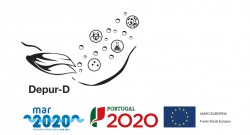
Consumption of bivalves can pose a risk to public health. The legislation requires the classification of production areas and their regular monitoring to ensure the bivalves’ health. The classification of these zones (A, B, C or D) is based on microbiological faecal contamination (the content of Escherichia coli and presence or absence of Salmonella sp.) and content of toxic metals (namely mercury, lead and cadmium). The most alarming zones are those of class C and D. The commercialisation of bivalves produced or caught in zones C (not intended for the processing industry) necessarily requires the transfer of bivalves to zones A, a process that is not economically viable. The harvesting of bivalves in zones D is prohibited by law. However, these classification criteria may underestimate the risk that bivalves may pose to public health, because the presence of other contaminants is not evaluated. On the other hand, efforts have not been made, nor have the necessary synergies created between professionals in the sector and research centres and units, to improve existing purification processes, which are in some aspects obsolete. In this sense, the University of Aveiro has led, together with professionals in the sector and with the support of the Mar2020 Program, projects that aimed to optimise the purification of bivalve molluscs. Some results obtained recently exceeded expectations and have changed the paradigm of bivalves purification since it was possible to depurate bivalves from zones C, in 24 hours. These results allowed us to set more ambitious goals. Thus, the DepurD project aims to develop methodologies and optimise processes that allow the detoxification and purification of bivalves from class C and D zones, investigating in depth the presence of persistent and emerging microbiological and chemical contaminants. Further, a system capable of determining reliable indicators of the quality of live bivalve molluscs for human consumption through artificial intelligence techniques and real-time collection of parameters is aimed. The studies will focus on 2 species with commercial value (Ruditapes decussatus and R. philippinarum) from the Ria de Aveiro, Óbidos Lagoon, Tagus Estuary, Sado Estuary and Ria Formosa.